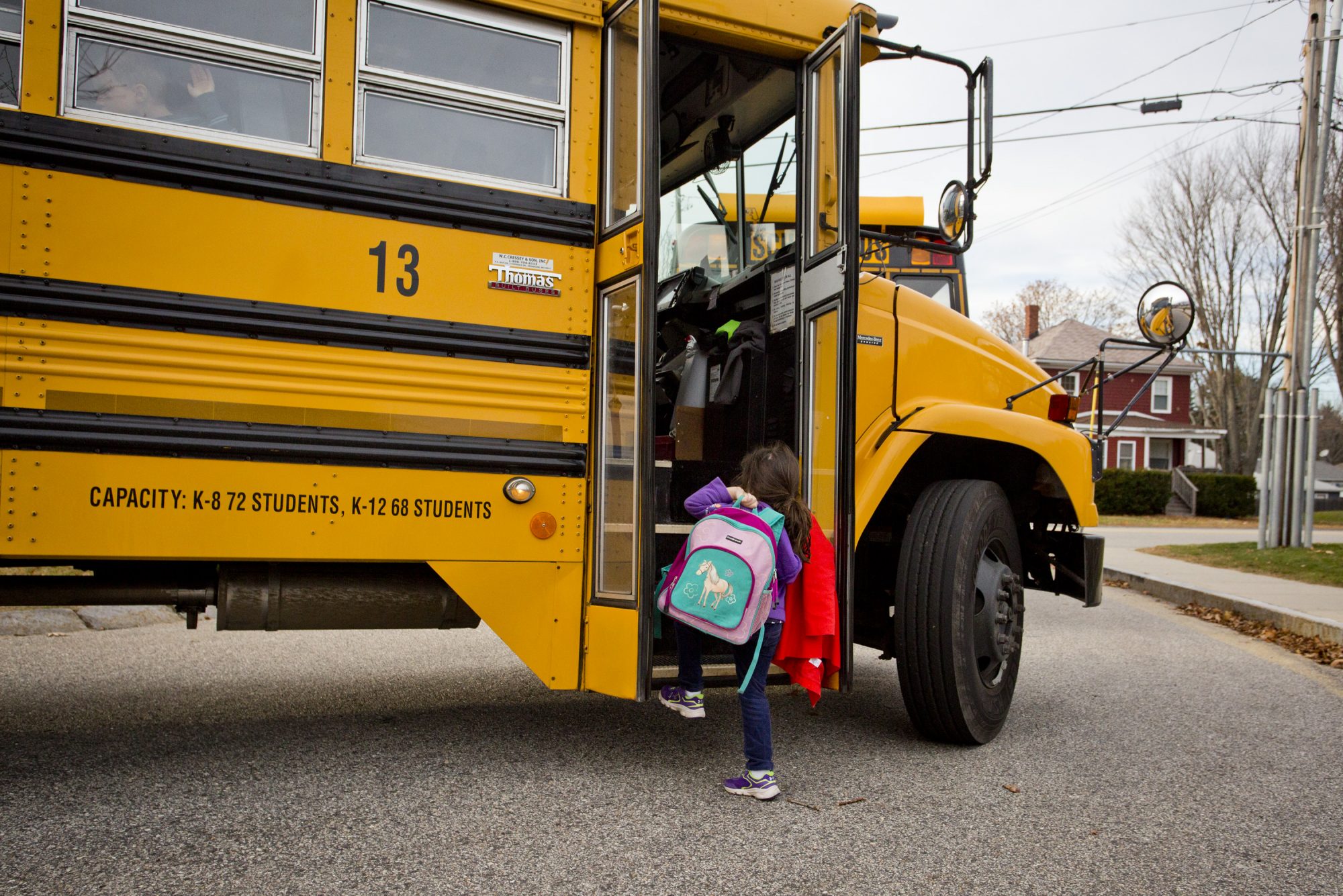
Back to school 2021 was stressful enough already. But Shatavia Hurt, a mom from Staten Island, New York, had an unexpected scare this month when her daughter, Mia, got on the bus—and wound up at the wrong school.
Hurt caught wind of the mistake thanks to technology. She had put Apple AirTag, a tracker for items, in Mia's sneakers. She noticed Mia wound up in the wrong location and says her "heart dropped."
Mia has a joint issue and ADHD. She's supposed to get door-to-door bus service. Now, she doesn't want to get on the bus anymore. Hurt picked up her daughter and has contacted the bus company and Department of Education but told Spectrum News she hasn't gotten an answer about what happened and why.
As Hurt still searches for answers, other families throughout the country are experiencing bus-related issues. Many parents are dealing with late buses or no school bus service at all. And in many cases, a bus driver shortage may be to blame.
More than 50 percent of school districts around the U.S. say their driver shortage was "severe" or "desperate," according to a nationwide survey by the National Association for Pupil Transportation (NAPT), the National Association of State Directors of Pupil Transportation Services (NASDPTS), and the National School Transportation Association (NSTA). What's more, 91 percent of survey respondents say they've made changes to their elementary schools' transportation services. Respondents with kids heading to middle schools (90 percent) and high schools (83 percent) aren't faring much better.
"Parents have had to take the responsibility of dropping their kids off at school again, and that is proving to be difficult since it is more costly than availing school bus services," says Elizabeth Hicks, co-founder of Parenting Nerd, a parenting resource website. "Working parents have to manage their jobs and their child's transportation side-by-side, which hinders their productivity."
Some parents relying on school bus service are leaning in on technology like AirTags to track their kids on their way and coming home from school. But here's what experts want parents to know.
Can Apple AirTags Help?
Apple AirTags helped the mom in Staten Island, and a TikTok mom revealed she was using it to make sure her children were safe at school.
If you're not familiar, AirTags are quarter-sized, glossy-white circles. You can put them on an item, such as a key or phone. If you lose the thing, you pinpoint its location using the "Find My" option on your iPhone. They're $29. But are they worth it for parents struggling through the bus driver shortage? Experts say no.
"AirTag is designed to track items, not people or pets," Hicks says.
The reason? AirTags do not have GPS technology. That means it's not a good tool for real-time tracking. AirTags instead work with Bluetooth and ultra-wideband technology, connecting iPhones or iPads that are nearby.
Kaiann Drance, Apple's VP of worldwide iPhone product marketing, also recommended against using it to track children in an interview with Fast Company in April. In the same interview, Drance suggested using an Apple Watch with a family set-up, but Deedee Cummings, M.Ed., LPCC, JD, points out this isn't an option for all families, as they can cost $400 or more.
"This can get very pricey for most parents," says Cummings, mental health expert, attorney, and author of 15 children's books.
What Else Can Parents Do?
Gadgets can help track children's whereabouts, but they can't drive them to school—and that's the biggest issue for families around the country. Experts share tips on how to help your child manage the latest detour on the road back to school.
Stay calm
As a parent, you didn't ask for bus shortages and disruptions to be thrown onto your plate. Mo Mulla, a father of two children and founder of parenting resource Parental Questions, stresses those feelings are valid. But he also says parents have to take a breath and help their child navigate it. "Remaining calm and being patient with the system…translates into being more supportive in their kids' lives," he says.
Have a plan
For children who are able to take next steps if transportation issues occur, Mulla advises parents to proactively talk about potential problems with them before they happen and develop coping strategies.
"If there are delays, they should have a plan to call parents with updates on when they'll arrive home," Mulla says. "Parents can also teach their kids where they're going and what landmarks to look for to help them get back on track if anything goes wrong."
Mulla also suggests having backup plans, such as a grandparent or neighbor, who a child can call if the bus doesn't show up and you're at work.
Consider carpooling
If there are constant disruptions to the schedule or a child will have too much difficulty navigating these issues when they occur, Hicks suggests teaming up with local friends or neighbors with kids at the same school to carpool. "Dropping to school can be shared as a responsibility by both parents," Hicks says.
This strategy can also help lessen the burden on one family.
Make it fun
Bussing issues aren't a walk in the park, but parents can help their kids put their best feet forward. "Pack their backpack with a special kit in a Ziplock bag, only to be opened on their adventure," suggests Cummings.
She recommends putting fun items like a coloring/activity book in the bag. "If you make this an adventure," adds Cummings, "they will think of it this way too."





